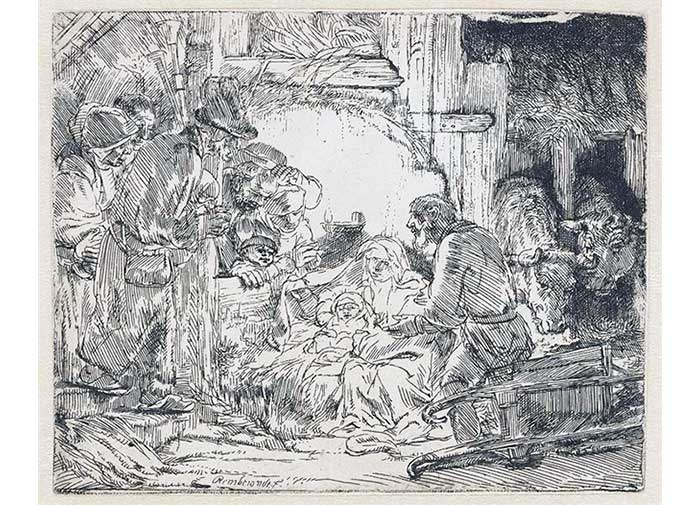When God came to earth there was no room in the inn but there was room in the stable. What lesson is hidden behind the inn and the stable? What is an inn, but the gathering place of public opinion, the focal point of the world’s moods, the residence of the worldly, the rallying place of the fashionable and of those who count in the management of the world’s affairs?
What is a stable, but the place of outcasts, the refuge of beasts, and the shelter of the valueless, and therefore the symbol of those who in the eyes of public opinion do not count and hence may be ignored as of no great value or moment? Anyone in the world would have expected to have found Divinity in an inn, but no one would have expected to have found It in a stable. Divinity, therefore, is always where you least expect to find It.
If in those days the stars of the heavens by some magic touch had folded themselves together as silver words and announced the birth of the Expected of the Nations, where would the world have gone in search of Him? The world would have searched for the Babe in some palace by the Tiber or in some gilded house of Athens or in some inn of a great city where gathered the rich, the mighty, and the powerful ones of earth. They would not have been the least surprised to have found the newborn King of Kings stretched out on a cradle of gold and surrounded by kings and philosophers paying to him their tribute and obeisance.
But they would have been surprised to have discovered him in a manger laid on coarse straw and warmed by the breath of oxen, as if in atonement for the coldness of the hearts of men. No one would have expected that the One whose fingers could stop the turning of Arcturus would be smaller than the head of an ox; that He who could hurl the ball of fire into the heavens would one day be warmed by the breath of beasts; or that He who could make a canopy of stars would be shielded from a stormy sky by the roof of a stable; or that He who made the earth as His future home would be homeless at home.
No one would have expected to find Divinity in such a condition; but that is because Divinity is always where you least expect to find It.
This article is excerpted from The Moral Universe: A Preface to Christian Living, by Fulton J. Sheen. Originally published in 1936 by The Bruce Publishing Company, Milwaukee, Wisconsin, USA.
Top image source: Nativity etching by Rembrandt, 1654, image in the public domain. Source from WikiArt.org.
Archbishop Fulton J. Sheen (1895-1979) was an American theologian and bishop, first in New York City and then in Rochester, New York. He became well-known for his preaching, especially on television and radio. He hosted the night-time radio program The Catholic Hour for twenty years (1930–1950) before moving to television and presenting a weekly program called, Life Is Worth Living. The show ran from 1951 until 1957, drawing as many as 30 million people on a weekly basis. He wrote 73 books and numerous articles and columns. Mother Theresa of Calcutta always kept a copy of Sheen’s book, Life of Christ, with her wherever she traveled for daily reflection and meditation.



